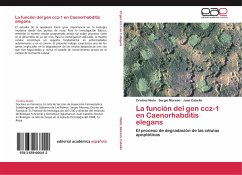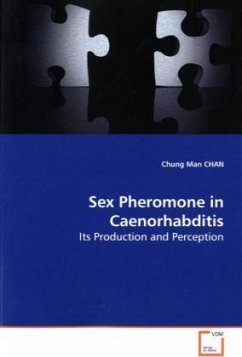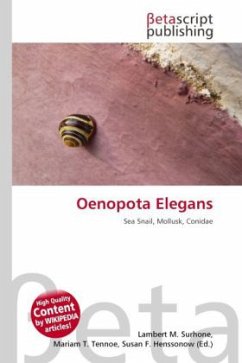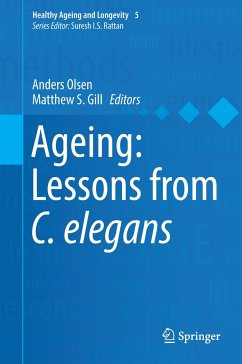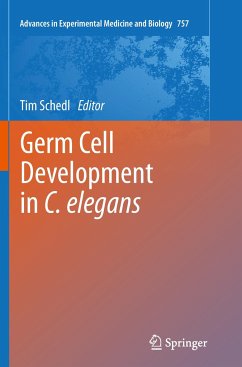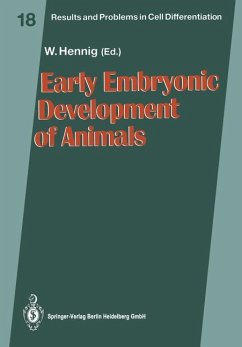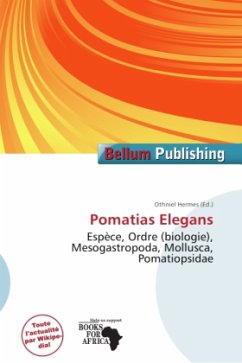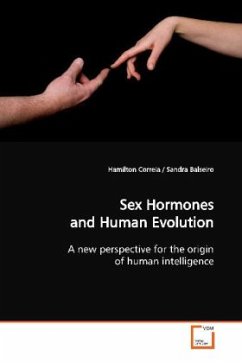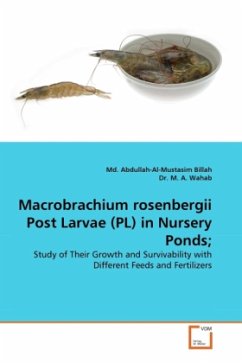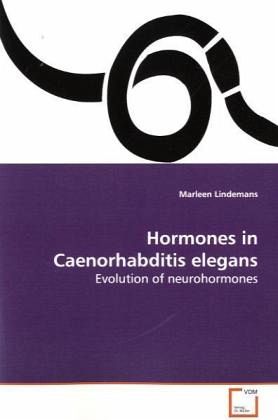
Hormones in Caenorhabditis elegans
Evolution of neurohormones
Versandkostenfrei!
Versandfertig in 6-10 Tagen
45,99 €
inkl. MwSt.

PAYBACK Punkte
23 °P sammeln!
Since the publication of its genome in 1998, the small free-living soil nematode Caenorhabditis elegans has rapidly reached the status of a supermodel, not only as a platform in the study of parasitic nematodes, but also as a model to study selected human diseases. Despite the completion of its genome, very little was known about neuropeptide hormone signaling in C. elegans, which appears to be an excellent model to study hormone signaling pathways that are conserved between Ecdysozoa (insects and nematodes) and vertebrates.The present book focuses on two ancient hormone signaling systems: tha...
Since the publication of its genome in 1998, the
small free-living soil nematode Caenorhabditis
elegans has rapidly reached the status of a
supermodel, not only as a platform in the study of
parasitic nematodes, but also as a model to study
selected human diseases. Despite the completion of
its genome, very little was known about neuropeptide
hormone signaling in C. elegans, which appears to be
an excellent model to study hormone signaling
pathways that are conserved between Ecdysozoa
(insects and nematodes) and vertebrates.
The present book focuses on two ancient hormone
signaling systems: that of gonadotropin-releasing
hormone (GnRH), regulating reproduction in
vertebrates, and the neuromedin U (NMU) signaling
pathway. We used a combination of bioinformatics and
reverse pharmacology to characterize the C. elegans
equivalents of these systems. Functional analysis
has been performed by means of RNA intereference and
localization experiments by whole mount
immunostaining. Using C. elegans, the complete
picture of the molecular mechanism of GnRH and NMU
signaling can now be further unraveled at the
organismal level, and this in a high-throughput way.
small free-living soil nematode Caenorhabditis
elegans has rapidly reached the status of a
supermodel, not only as a platform in the study of
parasitic nematodes, but also as a model to study
selected human diseases. Despite the completion of
its genome, very little was known about neuropeptide
hormone signaling in C. elegans, which appears to be
an excellent model to study hormone signaling
pathways that are conserved between Ecdysozoa
(insects and nematodes) and vertebrates.
The present book focuses on two ancient hormone
signaling systems: that of gonadotropin-releasing
hormone (GnRH), regulating reproduction in
vertebrates, and the neuromedin U (NMU) signaling
pathway. We used a combination of bioinformatics and
reverse pharmacology to characterize the C. elegans
equivalents of these systems. Functional analysis
has been performed by means of RNA intereference and
localization experiments by whole mount
immunostaining. Using C. elegans, the complete
picture of the molecular mechanism of GnRH and NMU
signaling can now be further unraveled at the
organismal level, and this in a high-throughput way.



